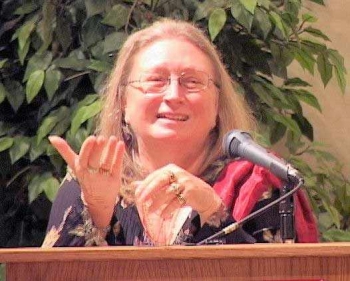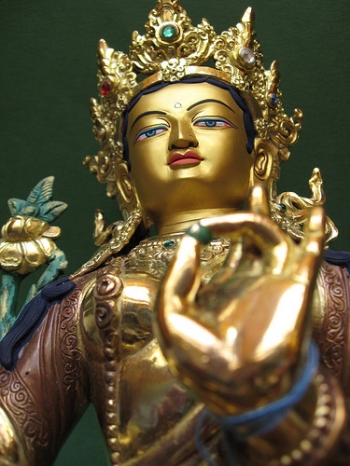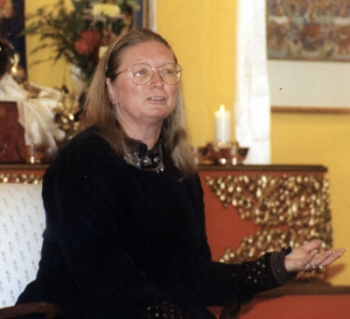I used to think that if there is such a thing as a next life, and I could choose to be reborn as a woman or a man, I would choose to be a man. Partly out of curiosity, and because it would make a change from my current situation. Mostly because I feel that somehow life is easier, and better for men.
Ancient Buddhist texts seem to agree with me on that one, and they offer countless advice on how to avoid being reborn as a woman. Amitabha even promises that any woman who manages to be reborn in the Pure Land will do so as a man. Now that’s a truly Pure Land, not a woman in sight!
Of course, back then, the people who were learning and teaching about Buddhism were all men, and maybe they felt sorry for women. After all, Ancient India was a male dominated society and there was little room for women to flourish intellectually and, sadly, even spiritually. Being reborn as a man would have made such things a lot easier, so the advice makes a little bit of sense.
Fast forward to modern times, and let’s follow the life of Rita Gross, who was born in rural America. Growing up in a very strict and patriarchal Lutheran context, she wished that she had been born a man so that she could do more interesting things with her life. As it was, it seemed that there were little options available to her other than getting married, having a family and doing housework.
One day, Rita saw a picture of angels, and realized that the angels were women. This changed something in her, for now she knew that wisdom could also appear in a female form. Years later she used this insight to counter her teacher’s claims that, because God and Jesus are male, women are inferior and must submit to men. As it happens, though, she was told that she had made a mistake, for which she was immediately corrected. You see, apparently it is widely known that angels are not correctly represented: although they look like women, they are actually men, too.
Thankfully, little Rita was not to be so easily discouraged. The words of her teacher did not weaken the insight that came from within, telling her that the problem lay not in being a girl, but in the system. Most of Rita’s life has since been spent studying, writing and teaching about women and religion. And ignoring claims that, since the feminine is included in the study of the masculine, learning about women is useless.
Now, Rita's path has been a difficult one, and luckily she came across some mentors and teachers who helped along the way. At a time when most women were encouraged to stop studying, she was supported by a female professor to continue her academic career. This is support which, so far, she had not found in her male teachers. After all, general consensus was that, as a woman, her main and sole duty was to procreate, not be an independent thinker. With an understanding female mentor to encourage her, she continued along her path.

















